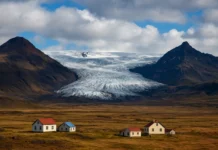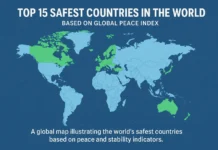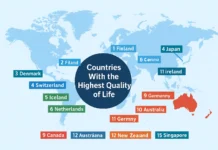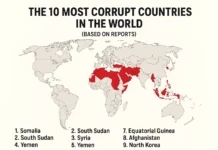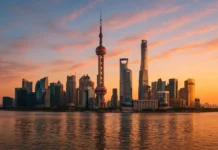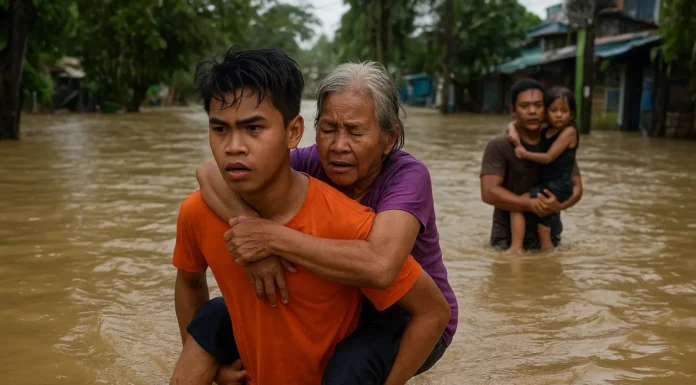
The world is experiencing rapid transformation driven by political change, technological disruption, environmental pressures, and economic uncertainty. While many countries continue to innovate and progress, the global community faces serious challenges that affect stability, quality of life, and long-term development.
This article highlights the 10 biggest challenges the world faces today, based on research from the United Nations and the World Bank. The goal is to provide a clear, balanced, and ad-friendly overview of the key issues shaping the planet’s future.
The World’s Top 10 Problems
| Rank | Global Problem | Description |
|---|---|---|
| 1 | Climate Change & Environmental Degradation | Rising temperatures, extreme weather events, pollution, and biodiversity loss. |
| 2 | Poverty & Economic Inequality | Billions are experiencing low income, limited opportunities, and widening wealth gaps. |
| 3 | Global Conflicts & Geopolitical Tensions | Ongoing wars, political instability, and international disputes. |
| 4 | Food Insecurity | Limited access to nutritious food due to conflict, climate, and economic pressures. |
| 5 | Public Health Risks | Emerging diseases and weak healthcare systems worsen the unequal access to vaccines. |
| 6 | Displacement & Migration | Millions displaced by conflict, disasters, or economic hardship. |
| 7 | Rapid Technological Disruption | AI ethics, automation, cybersecurity threats, and privacy issues. |
| 8 | Scarcity of Clean Water | Limited freshwater supply and poor sanitation in many regions. |
| 9 | Global Inflation & Economic Uncertainty | Rising costs of living, unstable markets, and debt crises. |
| 10 | Declining Trust in Institutions | Erosion of trust in governments, media, and public systems. |
Climate Change and Environmental Degradation
Climate change remains the most urgent global issue, impacting nearly every region. Rising temperatures, melting ice caps, severe storms, droughts, and wildfires pose a significant threat to agriculture, infrastructure, and human health. Pollution and habitat destruction are major drivers of biodiversity loss, accelerating the decline of species and ecosystems.
Authoritative source: United Nations Climate Change (UNFCCC)Poverty and Economic Inequality
Despite progress, an estimated 700 million people still live in extreme poverty. Wealth inequality continues to widen as high-income groups accumulate disproportionate resources. It impacts education, healthcare, housing, and long-term stability.
Authoritative source: World Bank Global Poverty ReportGlobal Conflicts and Geopolitical Tensions
Armed conflicts, territorial disputes, political rivalry, and ideological divisions have intensified in recent years. These conflicts displace communities, disrupt economies, and increase global insecurity.Food Insecurity
More than 2.3 billion people face moderate to severe food insecurity. Climate change, war, supply chain disruptions, and inflation reduce food availability and access, particularly in developing nations.Public Health Risks
Global health systems remain vulnerable to pandemics, antibiotic resistance, and emerging diseases. Many low-income regions lack access to quality medical care, vaccines, and essential supplies.Displacement and Migration
Conflicts, climate pressures, and economic hardship are driving the displacement of millions of people worldwide. Refugees and migrants often face discrimination, poverty, and legal barriers.Rapid Technological Disruption
Artificial intelligence, automation, and digitalization drive innovation but also create challenges for job markets and ethical standards. Cyberattacks, misinformation, and privacy risks continue to grow.Scarcity of Clean Water
Over 2 billion people cannot access safely managed drinking water. Droughts, pollution, and overuse strain freshwater supplies, while sanitation gaps increase disease risks.Global Inflation and Economic Uncertainty
Energy price surges, debt crises, and supply chain instability contribute to rising global inflation. Many households face increasing costs for food, housing, transportation, and utilities.Declining Trust in Institutions
Public trust in governments, news media, and international institutions has dropped. Concerns about corruption, misinformation, and political polarization weaken democratic processes and social cohesion.
Frequently Asked Questions (FAQs)
What is currently the biggest problem in the world?
Climate change poses the broadest long-term threat globally.
Why is economic inequality so difficult to solve?
It reflects broader gaps in educational resources, wage distribution, political power, and historical disadvantage.
How do global conflicts influence everyday people?
Conflicts disrupt trade, raise fuel and food prices, and contribute to migration and insecurity.
Which regions are most influenced by water scarcity?
Parts of Africa, the Middle East, and South Asia face the most severe shortages.
Why is trust in institutions declining?
Misinformation, political polarization, and perceived government inefficiency lessen public confidence.
Conclusion
The world faces complex and interconnected challenges that require cooperation, innovation, and long-term commitment. While these difficulties are serious, global organizations, governments, and communities continue to work toward solutions that promote stability and sustainable progress.
Understanding these issues is the first step toward building a more resilient future for all.
- The 10 Biggest Problems in North Korea
- 10 Biggest Challenges in China
- The 10 Most Corrupt Countries in the World (Based on Reports)

